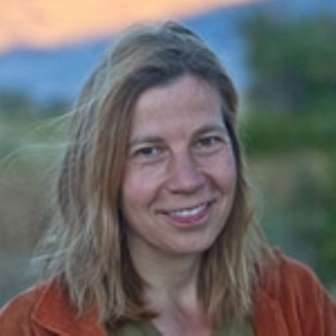Friday, 5 pm
Keynote: The Larry Wells Lecture 2018
“Reading the News from Nature”
Reading the environment in and around us, and communicating effectively its messages and
meanings has become one of the most important tasks in the Anthropocene. German thinkers
have long been at the forefront of environmental discourses, and have developed diverse models
of ecological literacy. Contributing to this rapidly developing field, my presentation considers
three interpretative voices who have delineated the imbrication of cultural and natural processes.
In Alexander von Humboldt ecologically-minded conception of nature as an intricate web,
volcanoes and in particular the depths of craters provided access to an “opened communication
between the interior and exterior parts” of the earth. To Louis Agassiz, glaciers as a formative
force in the shaping of the earth afforded insights into the dynamic and even agentic forces of
nature, pointing to a deeper history and sense of time that he later invoked to justify scientific
racism. Christian Enzensberger’s interaction with stones as an only seemingly inanimate matter,
finally, lays bare a world where human and non-human agency is no longer defined by contrast
but entirely interwoven. Their texts theorize, represent, and engage nature in examples that offer
points of contact for further discussion and challenge concepts of nature as a whole.
Saturday, 12:30 pm
Workshop: Teaching Nature in the Anthropocene
In the Age of the Anthropocene, existing models of defining and representing nature have become insufficient to probe the interaction of natural and cultural processes in challenges such as climate change, globalization, and geoengineering. Deepening some of the themes from the lecture, this workshop introduces recent primary texts that upset the division between nature and culture in innovative ways. In particular, we will explore texts that leave behind familiar tropes of representation, such as the sublime, the pastoral, or any other definition of one singular “nature” to focus instead on physical interactions on many scales. On the one hand, we will discuss disruptive agency in the form of pollution, dirt, and violence, and on the other, seemingly controlled nature encountered in a supermarket or at a ski resort. Looking in both cases at environments that divulge both anthropogenic changes and resilient natural forces, participants are encouraged to supply additional sources that may enrich existing meanings of nature.
Keynote Speaker and Workshop Leader: Caroline Schaumann, Emory University
Caroline Schaumann is Associate Professor of German Studies at Emory University and affiliated faculty with Jewish Studies and Film Studies.  She is the author of Memory Matters: Generational Responses to Germany's Nazi Past in Recent Women's Literature (De Gruyter, 2008), and established her presence in the growing field of ecocriticism with research articles on Alexander von Humboldt, mountain films, and hybrid environments in the Anthropocene. She co-edited the anthology Heights of Reflection with Sean Ireton (Camden House, 2012, in paperback edition in 2017), a special volume of Colloquia Germanica on “Dirty Nature” with Heather Sullivan (2014), and more recently, German Ecocriticism in the Anthropocene with Heather Sullivan (Palgrave, 2017). This anthology gathers essays on both canonical and non-canonical German-language texts and films in order to provide, on the one hand, ecocritical models for German Studies, and, on the other, an introduction to environmental issues in German literature and film for a broader audience.
She is the author of Memory Matters: Generational Responses to Germany's Nazi Past in Recent Women's Literature (De Gruyter, 2008), and established her presence in the growing field of ecocriticism with research articles on Alexander von Humboldt, mountain films, and hybrid environments in the Anthropocene. She co-edited the anthology Heights of Reflection with Sean Ireton (Camden House, 2012, in paperback edition in 2017), a special volume of Colloquia Germanica on “Dirty Nature” with Heather Sullivan (2014), and more recently, German Ecocriticism in the Anthropocene with Heather Sullivan (Palgrave, 2017). This anthology gathers essays on both canonical and non-canonical German-language texts and films in order to provide, on the one hand, ecocritical models for German Studies, and, on the other, an introduction to environmental issues in German literature and film for a broader audience.
Schaumann held a DAAD Research Stay Fellowship and Humboldt Fellowship for Experienced Researchers to complete research on Alexander von Humboldt in Berlin and Potsdam. Her most recent article appeared in the spring 2018 Alpinist Magazine and elaborated on Humboldt’s mountain ascents.